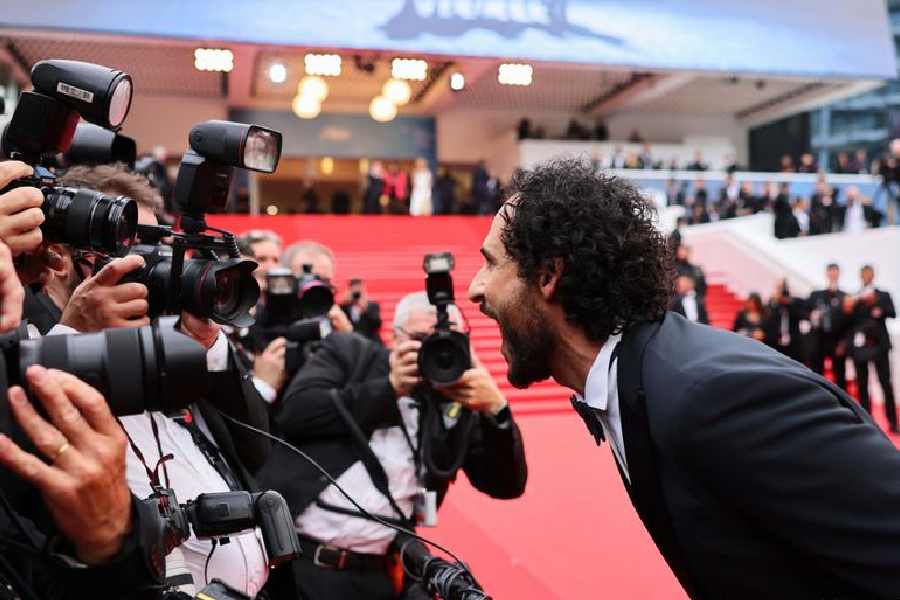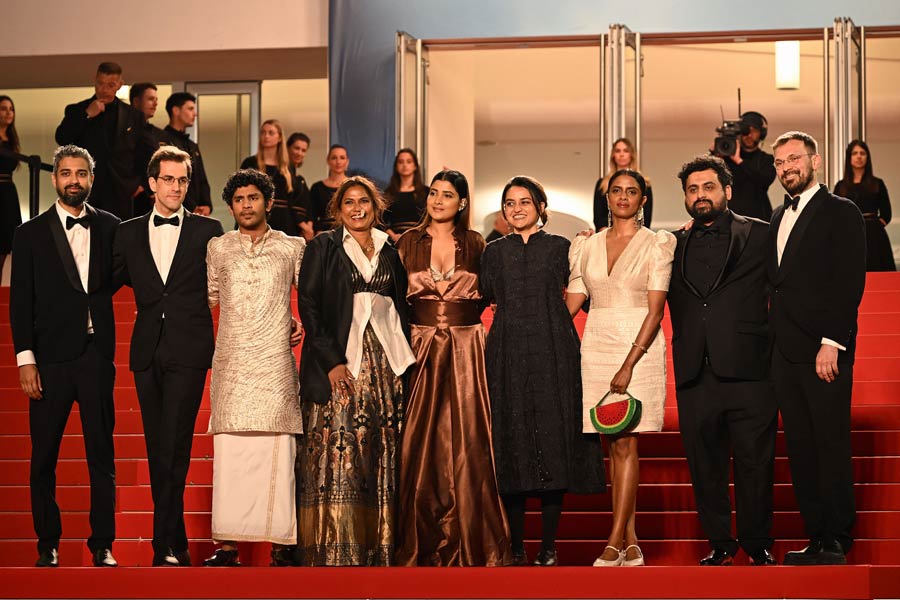"This is my 33rd Cannes festival and it's by far the worst I've ever seen," a weary Australian critic moaned to me over coffee as we discussed the high- but mostly lowlights of the 77th Cannes Film Festival. This is "only" my 23rd time, but I had to agree that for the world's most important film fest, 2024 has not been a banner year.
On paper, the lineup looked good. New films from arthouse masters included David Cronenberg's philosophical horror work "The Shrouds," Paolo Sorrentino's modern-day fable "Parthenope," Yorgos Lanthimos' star-studded "Kinds of Kindness," and Paul Schrader's Vietnam War-era drama "Oh, Canada." Then there were the potential studio blockbusters from George Miller ("Furiosa: A Mad Max Story") and Kevin Costner, whose "Horizons — An American Saga: Chapter 1" is the first of a planned four-part Western epic. Yet with most of these films, it seemed like their directors had just been going through the motions.
And then there was "Megalopolis," Francis Ford Coppola's $120 million (€110 million) sci-fi extravaganza that the "Godfather" director has been working on for the past 40 years. An epic reimagining of the Roman Empire in a retro-futuristic New York City, the film promised to be both studio-sized spectacle and arthouse classic at once.
For this film buff, "Megalopolis" was a gloriously silly and absurd mash-up of genres and tropes. One minute it evokes "Citizen Kane" with its epic story of American ambition and hubris. The next it feels like an inspirational video narrated by billionaire Elon Musk, then like a high school theater production. "Megalopolis" has its moments — one scene breaks the fourth wall in a way that felt audacious and truly revolutionary, but in the end it is an overlong mess.
Aside from "Megalopolis," the film that attracted the most attention in Cannes was "The Apprentice," a look at the making of Donald Trump from Danish-Iranian director Ali Abbasi and staring Sebastian Stan as "The Donald." Abbasi's portrait explores the former US president's rise to power in 1980s America under the tutelage of firebrand right-wing attorney Roy Cohn, played by "Succession" star Jeremy Strong. The film doesn't pull punches: Abbasi includes a scene in which Trump rapes his first wife, Ivana, and it graphically depicts him getting liposuction for his love handles and scalp reduction surgery for his bald spot.
The Trump campaign, calling the movie "pure malicious defamation," has already threatened to sue. Abbasi brushed that off — "Everybody talks about him suing a lot of people; they don't talk about his success rate though" — and defended his portrayal of the once and perhaps future US president.
"There is no nice metaphorical way to deal with the rising wave of fascism, there's only the messy way," he said after the film's Cannes premiere. "I think the problem with the world is that the good people have been quiet for too long. So I think it's time to make movies relevant. It's time to make movies political again."
The best movies at Cannes this year were the political and the polemic. "The Substance," from French director Coralie Fargeat, is a campy body horror about an older actress (Demi Moore) replaced by a younger star (Margaret Qualley) that explores, in bloody, gory detail, society's ghoulish obsession with youth and beauty.
Fargeat noted that the violence in the film was a metaphor for the violence, emotional and physical, that men inflict on women, and that women inflict on themselves in their pursuit of unrealistic ideals of beauty. "I don't know any woman that doesn't have an eating disorder or some other thing that they do that does violence to their bodies," Fargeat said, adding that she chose to show the violence on screen "in an extreme way because I think this violence is very extreme."
US director Sean Baker also took a swipe at toxic patriarchy and its treatment of female bodies in "Anora." The tale of a young sex worker in Brighton Beach, Brooklyn, who gets romantically entangled with the son of a Russian oligarch plays like a screwball comedy, but the jokes don't lessen the impact of the film's message of female exploitation.
French filmmaker Jacques Audiard delivered the festival's standout crowd pleaser with "Emilia Perez," a Mexico-set crime musical-cum-gender transition redemption tale starring Zoe Saldana, Selena Gomez and Spanish trans actress Karla Sofia Gascon in a jaw-dropping performance.
My pick for the Palme d'Or, the festival's top prize, is "The Seed of the Sacred Fig," from Iranian director Mohammad Rasoulof. Rasoulof fled Iran last week, escaping by foot over the mountains after he was sentenced to eight years in prison for his political films and his political activism against the Tehran regime. He has found refuge in Germany and, miraculously, will attend Cannes for his film's premiere.
These travails alone are worthy of the highest recognition. But "The Seed of the Sacred Fig" is also a cinematic masterpiece. The story of an investigative judge for Iran's Revolutionary Court who begins to turn against his own family as unrest ignites around the country, it is a deeply moving exploration of how authoritarian politics infect and corrupt at the deepest, most personal level.
The Cannes jury, headed by Greta Gerwig, will announce the Palme d'Or winner on Saturday












